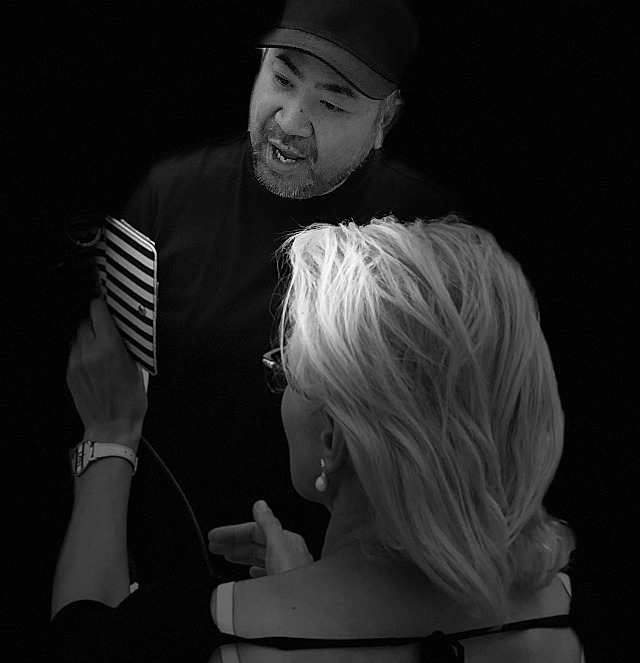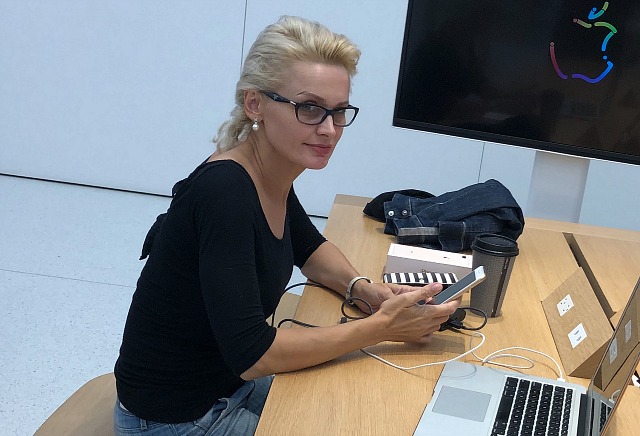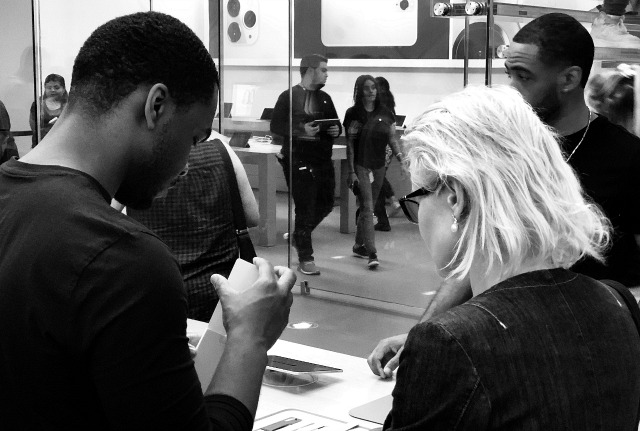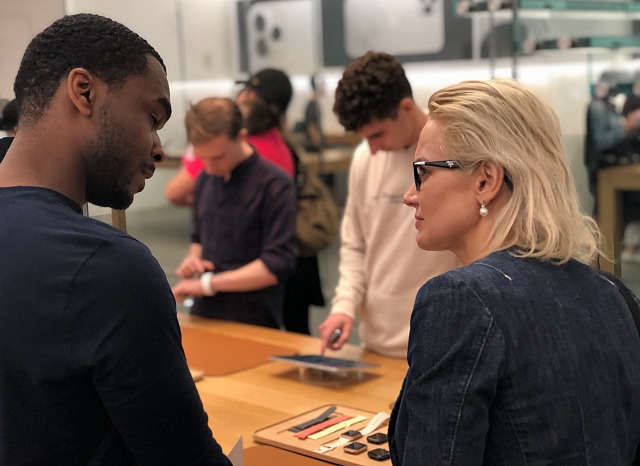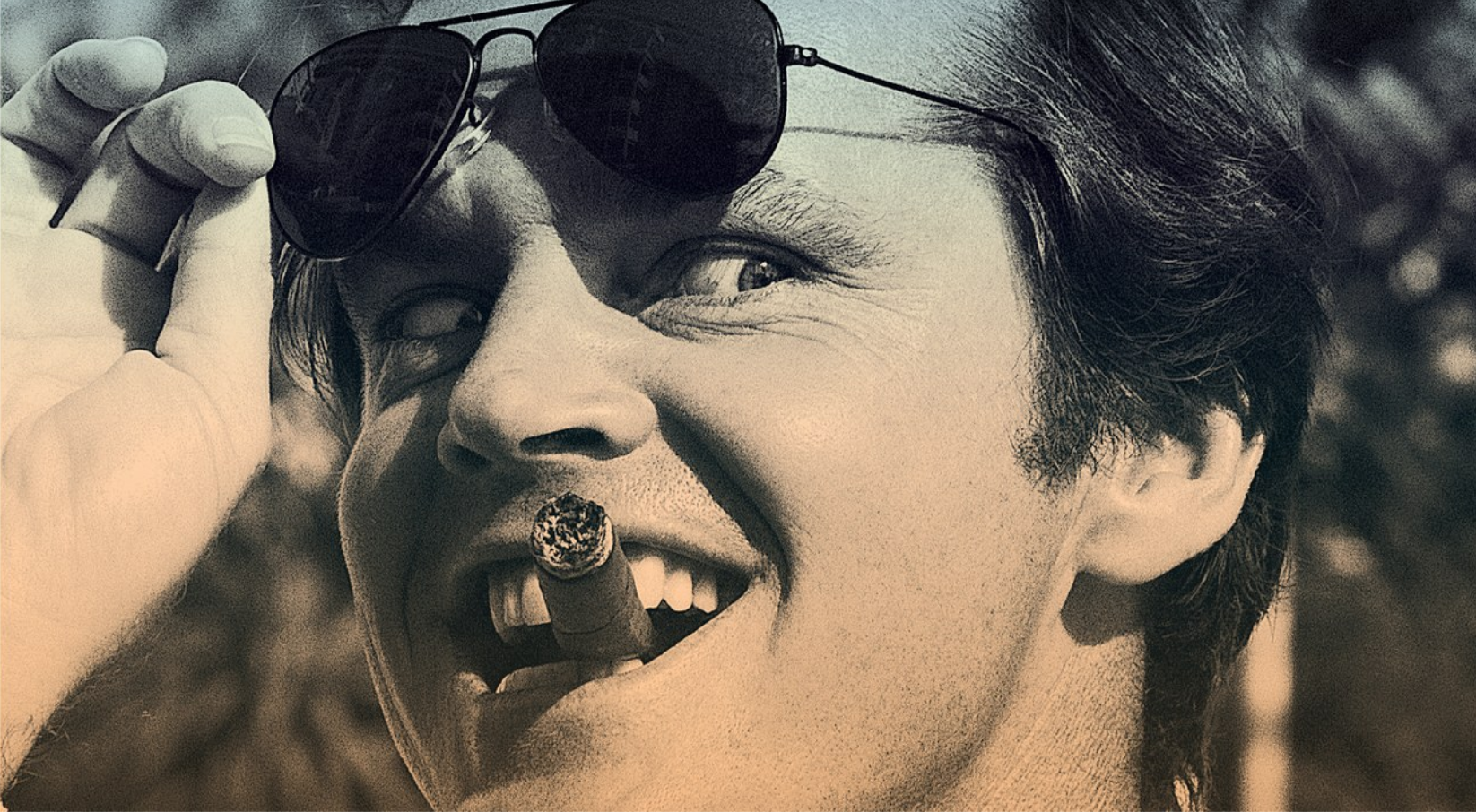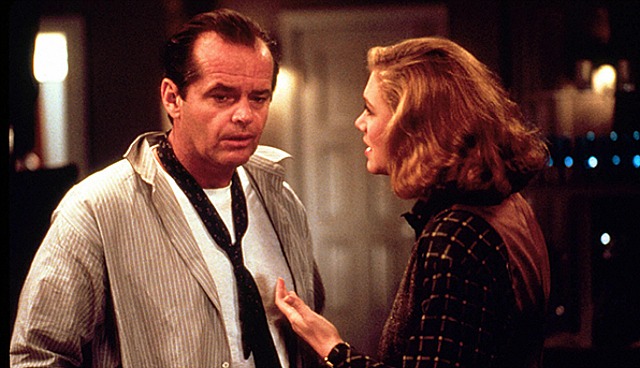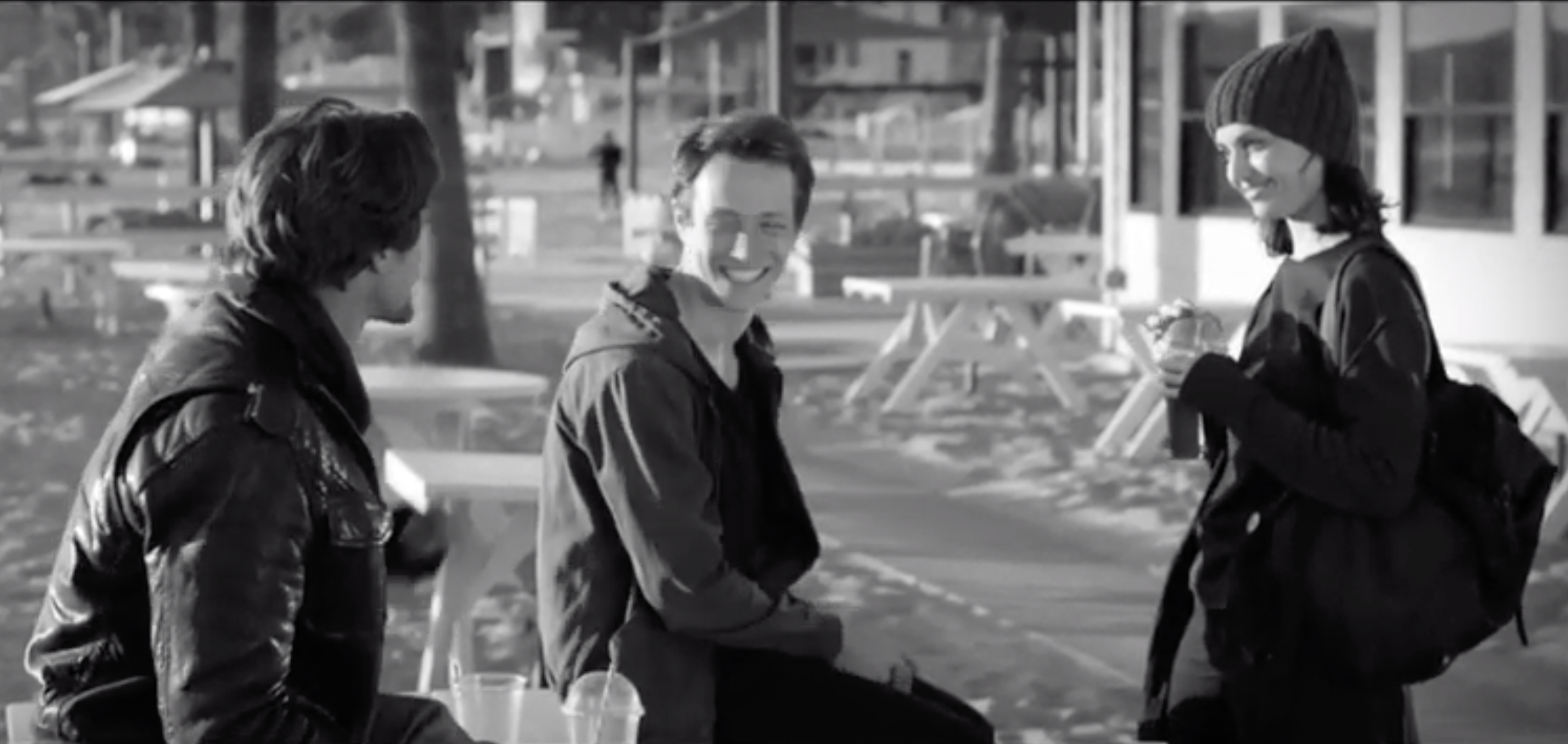No stones, no gambling, no nothing. I’ve never even flirted with the idea of betting on sports competitions as an ongoing diversion, and the only reason I shelled out for a nice wedding ring two and half years ago was because it was important to Tatyana. Otherwise forget it. Bling ain’t the thing. This aside, Adam Sandler is indisputably insane as a diamond-district broker with a ridiculous gambling addiction. More Gold Derby-ites besides myself and Yahoo’s Kevin Polowy should get behind him.
Daily
Beverly Walker’s Jackathon
It doesn’t seem like that far back when I attended the first big Academy screening of Prizzi’s Honor. But it happened 34 and 1/3 fucking years ago. Sobered by this realization, I started poking around yesterday, and eventually came across and re-read a fascinating Film Comment interview with Charley Partanna himself. Good reading, on point, nicely refined.
This morning I asked the author, Beverly Walker, whom I’ve known for eons, how it came about. The piece, she said, was derived from six hours of conversation, which happened in three installments. “Three separate interviews?,” I replied. “Wow, the access. Today all you can hope for is 20 minutes in a hotel room. Didn’t Jack’s publicist ask ‘Jeez, Beverly…how many sessions do you need?’ Can you give me a rundown about how and where it all happened?”
Beverly replied in less than an hour, and very tidily at that.
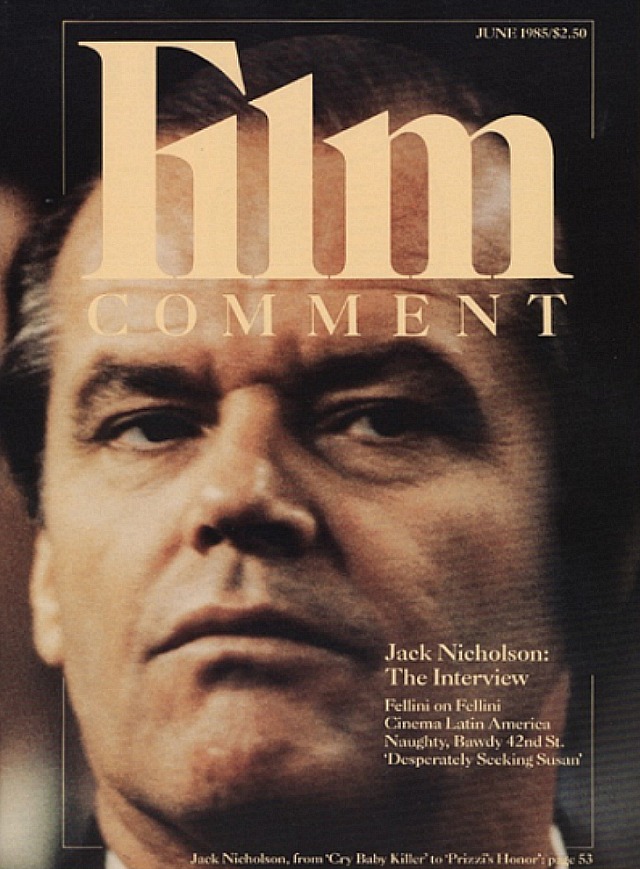
BW: “I had an acquaintanceship with Jack, having been introduced by Pierre Cottrell shortly after I moved to Los Angeles in 1970. Pierre — a producer with Barbet Schroeder of Eric Rohmer’s early films — had known Jack a long time; in fact, Jack had lived with Pierre and his wife, Edith, during a long sojourn in Paris in the ‘60s. Pierre had become a friend of mine during my years at the N.Y. Film Festival.
“This acquaintance with Jack was renewed when I handled NYC release publicity for The King of Marvin Gardens. I liked Jack a lot; I was fascinated by the huge difference between the guy I was around and his public persona. I knew how smart he was — how articulate — and thought he would be a great interview subject. Somewhere along the way, he said he would sit down with me for an interview,
During the filming of Prizzi’s Honor (which I worked on), he confirmed it.
“When shooting was finished, I went to his house on Mulholland on three separate occasions, for at least two hours each time, to talk with him. It was quite easy and informal. The second time, as I recall, he was distressed about losing most of his eyebrows, which were singed when a burner on his stove flared up**. It was scary, and he was in pain. Nonetheless, he carried on.
“Jack never had a publicist or an agent, just a manager. But the appointments were done through an assistant of his, whose name I regret to say I cannot recall, but whom I knew from being around the set on Prizzi’s Honor.
“We — Harlan Jacobson, editor of Film Comment at the time, and myself — had agreed to allow Jack to read the interview before publication. There was concern because Jack had indiscreetly talked so much about drugs and other inflammatory subjects; his position within the industry was a little iffy. I didn’t mind because I had no intention of addressing those subjects. I really wanted to allow him to show this other side of himself, which was largely hidden from the public.
Toronto Catch-Up
Several screenings over the next seven or eight days. A Beautiful Day in the Neighborhood tomorrow (Tuesday, 9.24) at 2 pm, and then a JoJo Rabbit on the Fox lot at 7 pm. The brief commercial opening of Steven Soderbergh‘s The Laundromat happens at the Landmark on the evening of Thursday, 9.26, and without an ability to catch a previous private screening I’ll probably be attending. A 10 am showing of a certain Lawrence of Arabia-sized film happens the next day, followed by a 5 pm viewing of Ladj Ly‘s Les Miserables (the first showing was in Cannes last May) at the DGA COLCOA Festival. The big Joker premiere happens on Saturday evening, 9.28, at the Chinese. A Beyond Fest screening of The Vast of Night on Monday, 9.30, and then a follow-up screening of Luce (my last viewing was nine months ago at Sundance ’19) at Soho house on Tuesday, 10.1 at 7:30.
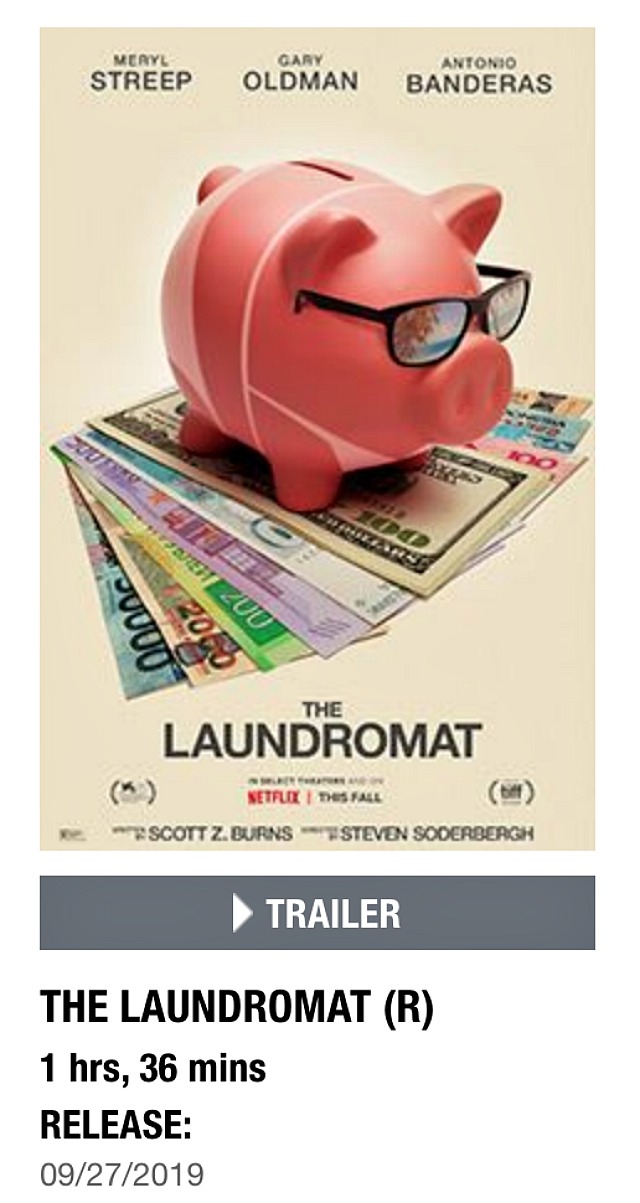
“We Are Your Life”
According to longtime Robert De Niro partner and Irishman producer Jane Rosenthal, Martin Scorsese‘s final gangster flick “is a slower movie. It doesn’t have the kind of intensity, the visual intensity, [of] a Casino or a Goodfellas. It is guys looking at themselves through an older perspective.”
It’s basically about “toxic masculinity” being the end-all and be-all of the life of mob hitman Frank Sheeran (Robert De Niro), Rosenthal says, “and what happens when someone chooses one family over their own nuclear family, and then tries to make repairs at the end of [his life]. What happens to men who make that decision.”
The Irishman will debut at the NY Film Festival on Friday, 9.27, or four days hence.
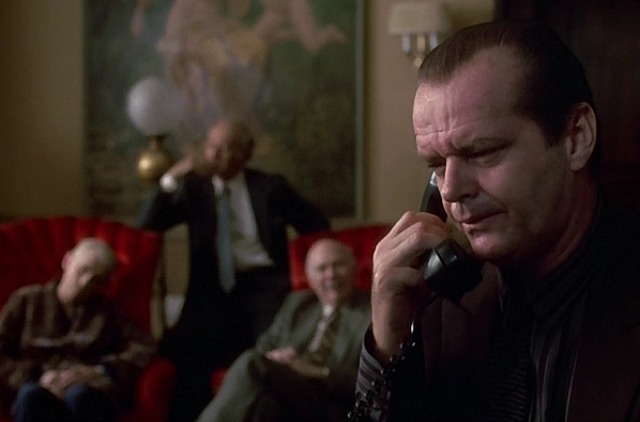
Can you imagine any old-time, bullshit-spewing producer in the Sam Spiegel or David O. Selznick or Harvey Weinstein mode calling one of his upcoming films “slower”? Rosenthal presumably means that The Irishman is sadder or more meditative, etc. But my God, in most people’s opinion “slower” is only a step or two removed from boring.
And the term “toxic masculinity”, of course, is straight out of your basic SJW feminist handbook.
Over the years most mobster types (including the ones in the first two Godfather films, Goodfellas and The Sopranos) have been portrayed as men who lived most completely in the company of their crime family paisans, and secondarily with their nuclear families, as a kind of fallback thing.
What was the final shot of The Godfather (’72) about, when Al Neri closed that door on Diane Keaton‘s Kay Adams? It was about Kay being shut out of the inner sanctum of Michael Corleone‘s gangster life, and realizing that she’ll always be kept in a restricted zone in which she’ll never really share or know what’s going on.
Remember the definitive line that Don Corrado Prizzi (William Hickey) says to Charlie Partanna (Jack Nicholson) in Prizzi’s Honor? They’re talking about unscrupulous hitwoman Irene Walker (Kathleen Turner), whom Charlie has recently married and loves deeply. The boss, however, wants her dead. When Charlie protests, he’s told that there’s no choice because the Prizzi family is everything. “She is your wife,” Don Corrado says, “but we are your life.”
How is this any different from what Rosenthal is talking about?
Is It Him Or Me?
There isn’t a guy alive who hasn’t dreamt about revelling in a three-way Satyricon thing, but a hetero menage a trois, trust me, is a lot more of a delicate struggle than you might think.
I wouldn’t normally mention that I lucked out with a couple of situations in my late 20s, but it seems allowable in the context of Svetlana Cvetko‘s Show Me What You Got, which is about a prolonged Jules et Jim-type relationship between a beautiful, dark-haired Italian woman (Christina Rambaldi) and a pair of spirited, medium-macho, ginger-haired dudes (Neyssan Falahi, Mattia Manasi).
Both times my threebies were between me and two women, and both were mixed experiences. On one level intimidating, on another level ecstatic, and on still another never truly open and equal and even-steven. Both times I found myself leaning towards one lassie over another, but I naturally didn’t want to convey this so I had to pretend as best I could that everything was everything and we all shine on. It was exhausting.
I decided early on that Show Me What You Got had to be about the fact that Rambaldi’s character would almost certainly prefer Falahi over Manasi or vice versa, and that the story tension would have to be about her choosing one over the other. Or perhaps getting pregnant but nobody knowing who the father is. Or (this was my favorite) her becoming pregnant by a third guy whom Falahi and Manasi haven’t met or even been told about. Preferably some super-rich, Porsche-driving guy a la Robert Redford in Indecent Proposal.
All good love stories need some kind of basic tension. They all require that the person with the most power in a relationship has to choose option A, B or C. They can’t just be about ongoing eros or gliding along.
If You’ve Never Watched A Black-and-White Film…
Influential YouTube film critic Chris Stuckmann was born on 4.15.88, or less than two months before Jett came along on 6.4.88. It’s fine that Stuckmann had the smarts and character to post this 12 Angry Men tribute in January ’18, but it’s striking to hear him say “if you’ve never watched a black-and-white film, start with this one.” In other words, Stuckmann has reason to believe that among his 1.5 million Millennial subscribers, watching a black-and-white film is considered an exotic event, to put it mildly. Or perhaps something that a significant majority of his subscribers have never, ever done. Think about that.
Followed on Twitter
HE’s favorite Emmy wins were (a) Michelle Williams taking the Outstanding Lead Actress in a Limited Series or Movie trophy for her work on Fosse Verdon, which I loved from the get-go, and (b) Jason Bateman‘s Outstanding Directing for a Drama Series Emmy for Ozark (Episode: “Reparations”, Netflix). I haven’t seen a single episode of Fleabag…nothing. The major networks are all but out of the game.

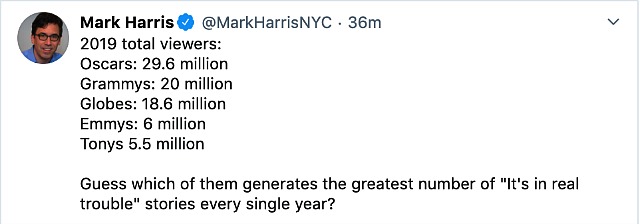
Now I Understand Yossarian’s Point of View
40% of the 125,000 bomber crews that served during World War II, or roughly 50,000 men, emerged relatively unscathed by war’s end. But 60% or 75,446 men died, were wounded or shot down, the latter ending up in German or Japanese prisoner-of-war camps (like Steve McQueen‘s Cpt. Virgil Hilz in The Great Escape). Bad odds.
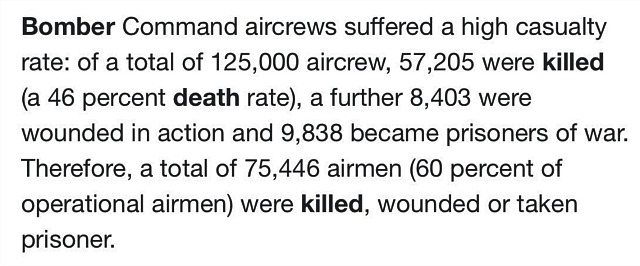
From realclearhistory: “The U.S. suffered 52,173 aircrew combat losses. But another 25,844 died in accidents, and more than half of these died in the continental U.S. The U.S. lost 65,164 planes during the war, but only 22,948 in combat. There were 21,583 lost due to accidents in the U.S., and another 20,633 lost in accidents overseas.”
Discipline, Discreet Humping, Shifting Social Structures, etc.
Producer pally: Saw Downton Abbey yesterday. Very good film. Crowd-pleaser, multiple award-season contender. Don’t underestimate.
HE: Oh, really?
Producer pally: Oscar for costume design, production design. SAG ensemble cast nom, maybe a win. Maybe some supporting Globe noms. Best Adapted screenplay. GoldenGlobes nom, Drama. Maybe Best Pic Oscar nom. A luxurious feel-good movie. The kind critics resist loving.
HE: Let no Golden Globe voters write my epitaph.
Producer pally: Have you seen it?
HE: No, but not for lack of interest. No Focus Features invites to speak of. I can’t say that the whole Upstairs Downstairs genre (rich English gentry + servant staff co-habiting and co-plotting under same roof + tea and crumpets + horses in the nearby stable) means as much today as it did 30 or 40 years ago, but I intend to see this soon, somehow or some way.
“Super Stories”?
The instant I read this morning’s Film Courage tweet about Houston Howard‘s 2017 book — “YOU’RE GONNA NEED A BIGGER STORY: The 21st Century Survival Guide To Not Just Telling Stories, But Building Super Stories” — I was on the verge of throwing up. Trans-media, something bigger, diegetic, world-building…something that feeds into franchises and leads to huge paydays and blowjobs in the parking lot. “Super stories”!
Let me explain something. Houston Howard is a kind of Lex Luthor — he has a wife and two dogs, and one of his mottos is that creators “need to feed their fans like they feed their dogs…attention is the game.” Howard seems like a smart, nice enough guy, but to me he’s also evil incarnate as far as classic cinematic traditions and the art of solid, stand-alone stories are concerned. Billy Wilder is looking down from heaven and scowling like a wild dog.
Outside The Cabal
“The problem I have with James Gray and why critics love him, I think, is essentially because he’s a cold filmmaker. I’m sure he envisions himself as Kubrick-lite and maybe so since Kubrick also had chilly water flowing through his veins. But none of Gray’s films invite you in — they keep you at arm’s length as an observer, not a participant. Critics tends to dismiss filmmakers who emphasize emotional content. Even Hitchcock, who thrived on emotion, was dismissed in his time. Gray is obviously intelligent but his films exude the sensibility of a calculating, emotionally distant academic.” — Received this afternoon from a filmmaker friend.
Monochrome Moods
Yesterday afternoon, as Tatyana was exchanging her iPhone 6 for a new iPhone 8 Plus, I downloaded iOS 13.0 on my own iPhone 8 Plus, which I’ve had for about 18 months. Many cosmetic but agreeable changes (i.e., faster keyboard, dark mode, new photos tabs, tweaks of this and that) but I’m especially loving all the new visual adjustment options on the camera. I probably could have shot all kinds of mesmerizing black-and-white captures before yesterday, but I’m suddenly into it now because I was lazy before or whatever.

